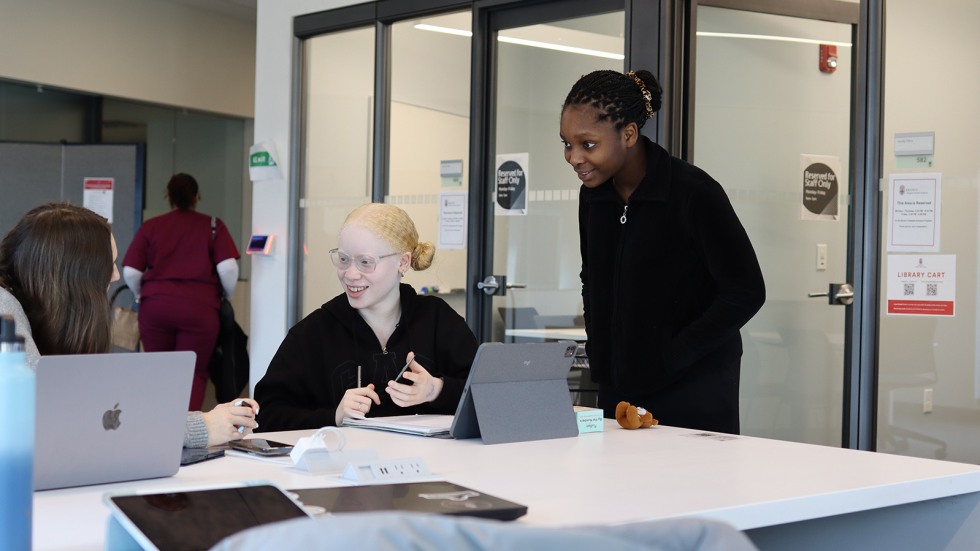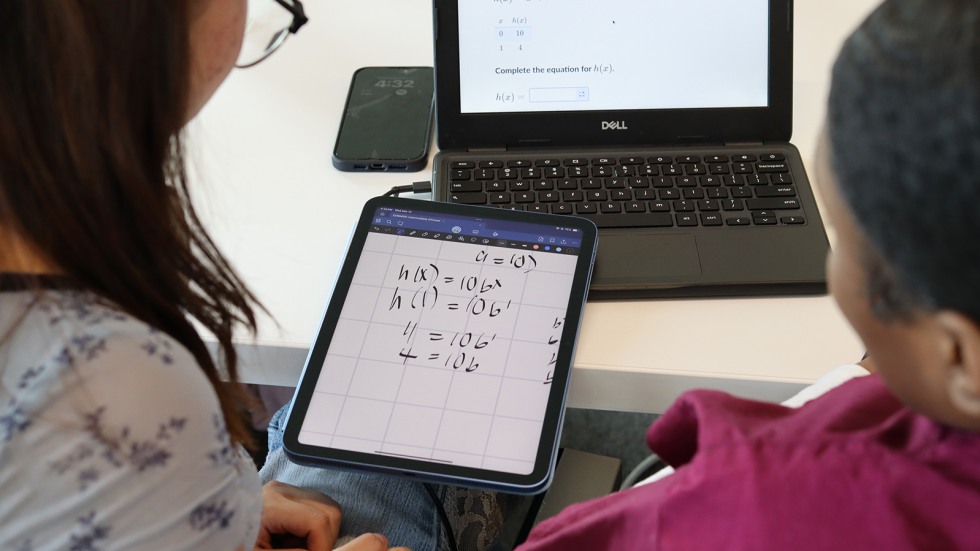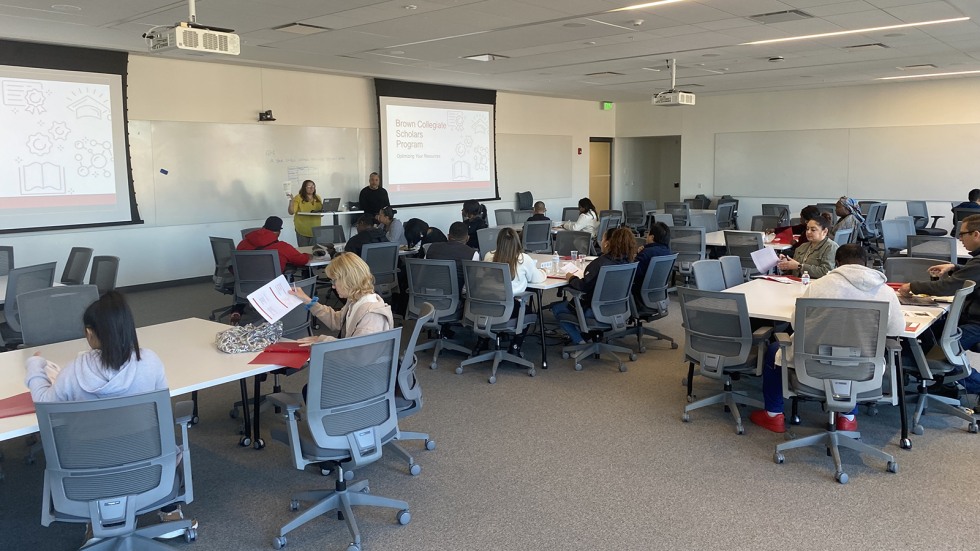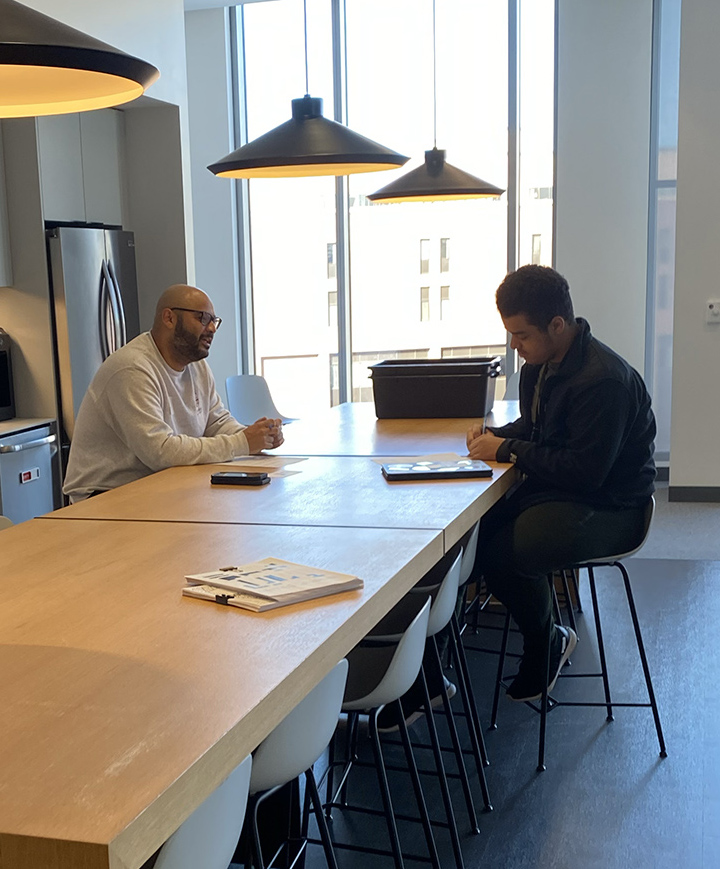PROVIDENCE, R.I. [Brown University] — It might have been a cold, cloudy Saturday in late March, but for a group of local high schoolers, it was a glimpse into a bright, promising future.
As part of the Brown Collegiate Scholars Program, more than 25 Providence Public School District students and their families traveled an hour-plus to visit the University of Connecticut, where they toured campus buildings, ate in dining halls, explored the recreation center and connected with undergraduate guides — all to get a firsthand look at college life. The trip marked their second college visit this academic year. Last fall, they explored College of the Holy Cross in Massachusetts, expanding their sense of what different campuses offer.
But visits to other schools are just one piece of the Brown University-based multi-year college-preparation program, which launched last summer with its first cohort. Beginning before high school and continuing through graduation, the Brown Collegiate Scholars Program supports cohorts of PPSD students at every stage of the college preparation process — from establishing a foundation for academic success and exploring interests to preparing for college entrance exams, navigating financial aid and planning for residential life on campus.
Nick Figueroa, director of the Brown Collegiate Scholars Program, said the first year of the four-year program is all about helping students adjust to high school while introducing them to the possibilities ahead.
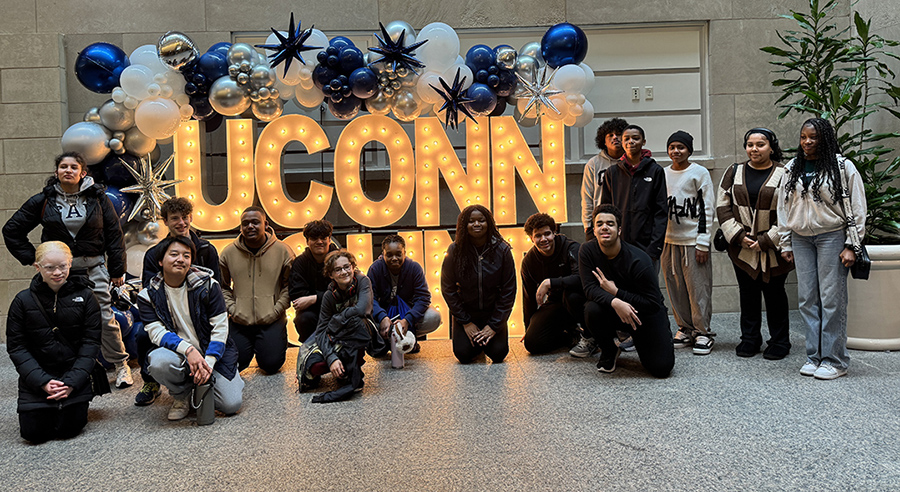
“To get them thinking about their own path to college, we focus on exploring interests, building confidence and strengthening the academic skills they’ll need to succeed,” Figueroa said. “We see tremendous potential in this first cohort and are committed to nurturing and supporting that potential — helping them realize their college aspirations and ensuring they have the resources to achieve their degree attainment goals.”
After launching their four-year journey as scholars with a month-long program in July 2024, students returned to campus in October to continue year-round programming. Their weekly schedule includes one-on-one tutoring, advising, mentorship and group workshops designed to strengthen academic skills and college readiness and engage families in the college admissions process.
During the school year, scholars have access to a dedicated study space on Brown’s campus at 225 Dyer St. Each weekday, undergraduates with the Brown Tutoring Corps are stationed throughout to provide homework help, offering support across a range of subjects, including history, math, science and English, as well as French, Italian and Spanish. Some tutors are bilingual, providing additional support for Spanish-speaking students.
Brown Collegiate Scholars program advisor Gizzelle Fernandez, who serves as a dedicated adviser for the first cohort, said the drop-in tutoring model is flexible and designed to meet the high schoolers’ unique needs.
“We encourage students to use tutoring in a way that works best for them,” Fernandez said. “If they have a test, tutors can help review study materials or create flashcards. If there’s no test, tutors will assist with homework, whether it’s going over a history worksheet, working through algebra problems or proofreading an essay. The goal is to tailor tutoring to meet whatever academic support they need.”
